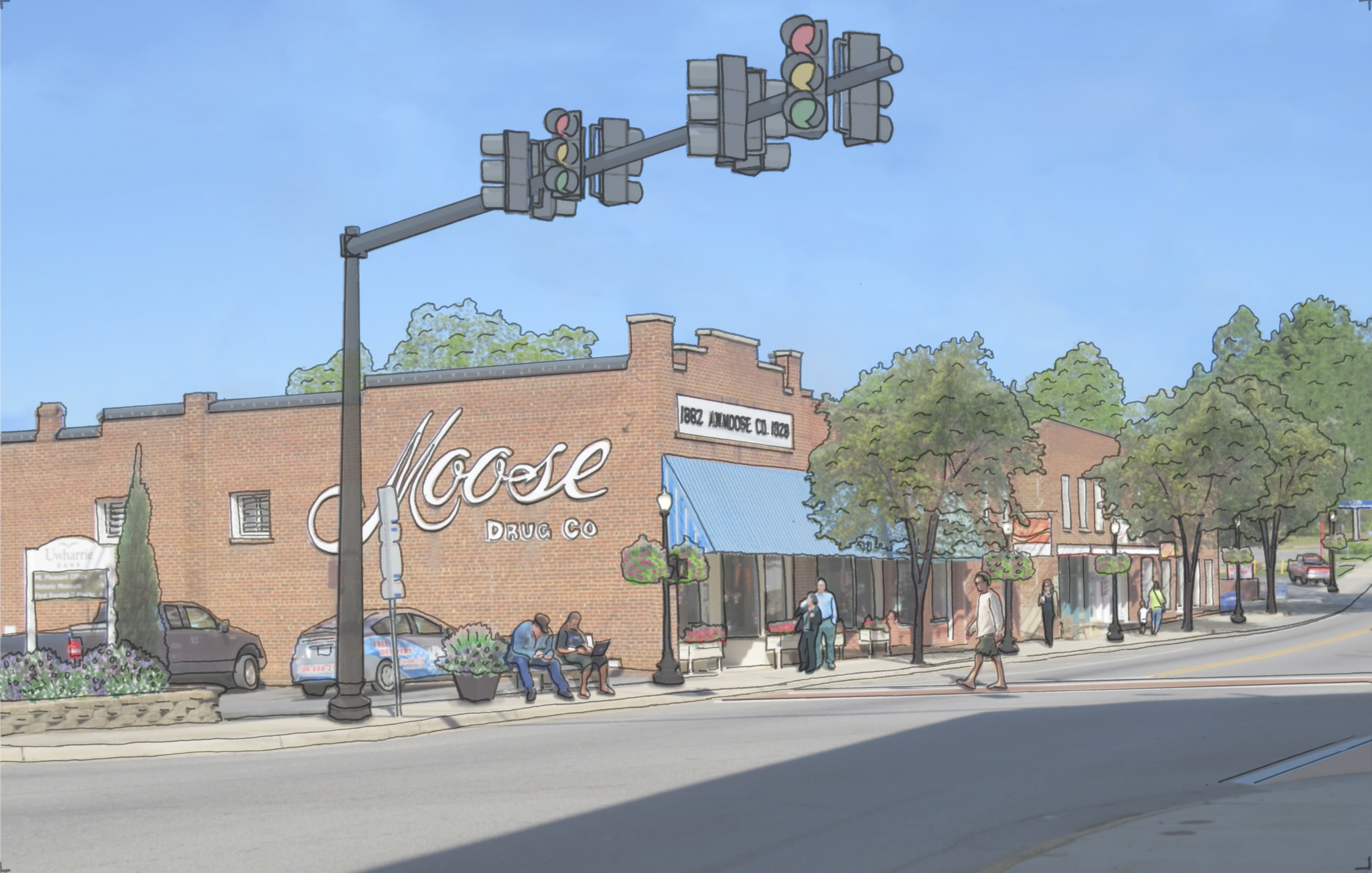The Planning & Economic Development Department is responsible for overseeing the maintenance and implementation of the Town's adopted Comprehensive Plan. The Department also ensures compliance with the zoning and development regulations in the Mount Pleasant Development Ordinance and applicable portions of the Town's Code of Ordinances. The Department coordinates with the Cabarrus Economic Development Corporation, the Cabarrus Chamber, Explore Cabarrus, and Pleasant Life to promote and support new and existing industry, businesses, and tourism in Mount Pleasant and eastern Cabarrus County.
comprehensive plan
The Town of Mount Pleasant Board of Commissioners adopted an updated Comprehensive Plan on June 10, 2025. This plan carries forward the same Vision Statement and Goals as the original 2017 plan. As required by state law (NCGS 160D-501), a plan is required for any jurisdiction that exercises zoning regulation, and the plan must be reasonably maintained. Standard practice is to review and update a Comprehensive Plan every 5 to 10 years. Since it had been just over 7 years since the plan was originally adopted, this update is intended to maintain the plan, as required. The plan update provides more recent census data, land uses intensities that match existing and planned utility infrastructure, and next steps in goal implementation. Click on the links below to review the updated plan or the summary:
Comprehensive Plan Update-2025
2025 Comprehensive Plan Update Summary
For comparison, the 2017 Comprehensive Plan can be viewed here:
2017 Comprehensive Plan
